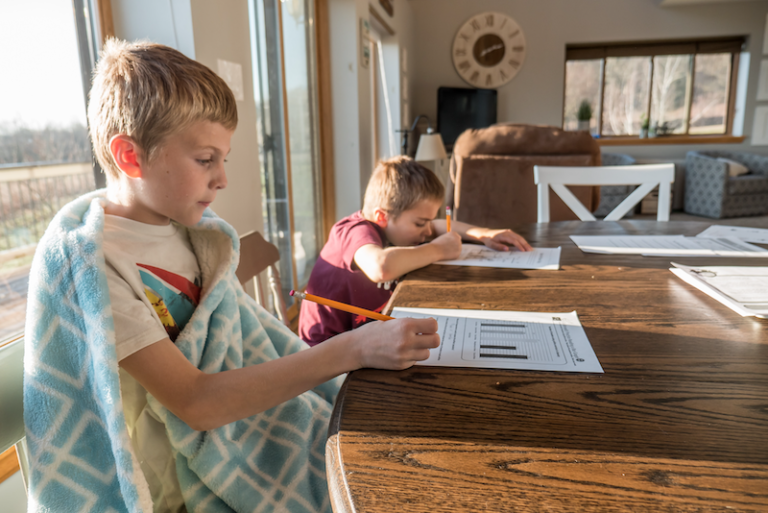As a parent, you want the best for your child. You want them to succeed in school and in life, and a big part of that is developing good study habits at an early age.
But how do you help your child focus and learn effectively? And what can you do to motivate them to want to learn?
Here are some tips on how to increase your child’s focus and attention span, as well as create a good environment for learning.
Good Study Habits for Children
Children need to develop good study habits to succeed in school and in life. Some key habits to encourage include:
- Setting aside a dedicated study time and place: Children should have a designated time and place to study where they can focus without distractions.
- Taking breaks: Studies have shown that taking short breaks during study sessions can improve focus and retention of information. Encourage your child to take a quick break every 20–30 minutes to stretch, grab a snack, or do something fun.
- Using a planner: Teaching your child to use a planner can help them stay organised and on top of their assignments. Encourage them to write down their homework and other tasks in a planner, and check off items as they are completed.
- Reviewing notes and materials: Reviewing notes and materials after a lesson can help children retain information and prepare for exams. Encourage your child to review their notes within 24 hours of a lesson, and quiz themselves to test their understanding.

How do children study best?
Every child is different, and what works for one child may not work for another. That being said, there are some general strategies that help most children focus and learn more effectively. These include:
- Using visual aids: Children often learn better when information is presented visually. Encourage your child to use diagrams, charts, and other visual aids to help them understand and remember information.
- Using hands-on activities: Children often learn better when they can interact with the material. Encourage your child to use hands-on activities, such as building models or conducting experiments, to help them understand and retain information.
- Teaching others: Encourage your child to teach what they have learned to a sibling or a friend. This can help them better understand the material and retain it for a longer period of time.
How do I nurture my child's motivation to learn?
Motivating a child to want to learn can be a challenge, but there are a few strategies that can help:
- Make learning fun: Children are more likely to be engaged and motivated if they are having fun. Find ways to make learning fun by incorporating games, puzzles, and other interactive activities.
- Set goals: Setting goals can help children stay motivated and focused on their studies. Encourage your child to set short-term and long-term goals for their learning, and celebrate their progress along the way.
- Find their interests: Children are more likely to be motivated to learn if they are interested in the material. Encourage your child to explore their interests and find subjects that they are passionate about.

Have a little Year 1 reader? We’ve written an article about great reading resources to inspire children to read.
How do I help my child increase their focus and attention span?
A child’s focus and attention span can be improved with practice. Here are a few strategies to help increase focus and attention span:
- Limit distractions: Create a distraction-free environment for your child to study in. This might mean turning off the TV and other screens, or finding a quiet place for them to work.
- Use mindfulness techniques: Mindfulness techniques, such as deep breathing and meditation, can help children focus and stay calm. Encourage your child to practice mindfulness techniques, such as taking deep breaths, focusing on their senses, and paying attention to the present moment.
- Exercise: Exercise can improve focus and attention span. Encourage your child to get plenty of physical activity, whether it’s through organised sports or simply running around and playing.
- Get enough sleep: Sleep is crucial for focus and attention span. Encourage your child to get enough sleep by establishing a consistent bedtime routine and making sure they have a comfortable place to sleep.
What could cause my child to lose focus?
There are several factors that can contribute to a lack of focus in kids, including:
- Lack of sleep: As mentioned above, sleep is crucial for focus and attention span. If your child is not getting enough sleep, it can affect their ability to focus and concentrate.
- Poor nutrition and hydration: An unvaried diet high in processed foods can affect a child’s focus and attention span. Encourage your child to eat a well-balanced diet with plenty of fruits, vegetables, and healthy proteins and fats, and to drink plenty of water throughout the day.
- Lack of physical activity: As mentioned above, exercise can improve focus and attention span. If your child is not getting enough physical activity, it can affect their ability to focus and concentrate.
What's a "child focus activity"?
A “child focus activity” is any activity that helps a child improve their focus and attention span. Some examples include:
- Mindfulness techniques: As mentioned above, mindfulness techniques such as deep breathing and meditation can help improve focus and attention span.
- Puzzle games: Puzzle games, such as Sudoku or crossword puzzles, can help improve focus and attention span by requiring the child to think critically and solve problems.
- Lego building: Building with Lego blocks requires concentration and attention to detail, which can help improve focus and attention span.
- Drawing and colouring: Drawing and colouring activities can help improve focus and attention span by requiring the child to pay attention to details and stay within the lines.
What's a good environment for focus?
A good environment for focus is one that is free from distractions and conducive to learning. Some key elements of a good environment for focus include:
- A dedicated study space: A designated study space, such as a quiet room or a corner of the house, can help children focus and concentrate.
- Minimal distractions: A distraction-free environment is crucial for focus. This might mean turning off the TV and other screens, or finding a quiet place to work.
- Good lighting: Good lighting can help improve focus and reduce eye strain. Encourage your child to study in a well-lit area.
- A comfortable temperature can also help improve focus. Make sure your child’s “study-room” isn’t too hot or too cold, and that they have comfy and supportive seating.

The role of parents in supporting children's focus and study habits
As a parent, you play a crucial role in your child’s learning and development. Here are some ways you can support your child’s focus and study habits:
- Show them you care: Let your child know that education is important and that you value their studies. Help them set aside dedicated study times, and remind them to stay on top of their assignments. Listen to them and answer their questions so show that you’re engaged in their learning too.
- Be a role model: Children often model their behaviour after their parents, so be a role model by demonstrating good study habits yourself. If you work or study from home, you can show them how you set time aside to focus, and suggest they do their homework or reading while you’re working, as a group activity.
- Offer support and encouragement: Children need support and encouragement in order to succeed. Be available to answer questions and provide help when needed, and offer praise when your child is doing well. Positive reinforcement goes a long way, so really show them how proud you are when they do well, or when they are working hard.
A combination of good study strategies
If you want to help your child develop healthy and lasting learning habits you’ll have to support them across the board, physically and mentally.
Combine all the strategies above. Motivate your child to want to learn by making learning fun and finding their interests, and help increase their focus and attention span by creating a nurturing learning environment, practicing mindfulness techniques, exercising, and making sure they get enough sleep and a healthy diet.
We hope these tips help you support your child’s learning journey, and build a positive relationship to learning that lasts their entire life.



